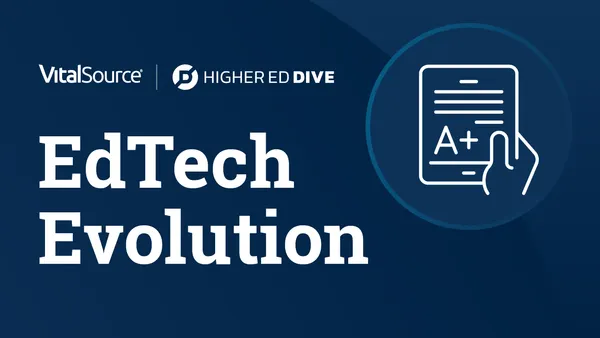Dive Brief:
- Multiple ideas to accredit alternative credentialing pathways are gaining traction in a push to expand opportunities for nontraditional, post-secondary learning.
- Massive open online courses, coding bootcamps, and other programs offering “microcredentials” can’t currently accept federal financial aid because they’re not accredited, which ends up limiting access to low-income prospective students, Insider Higher Ed reports.
- Alternative pathways to accreditation include partnerships with accredited universities, the creation of new — state or federal — accreditation agencies, and authorization for existing accreditation agencies to do the job.
Dive Insight:
Inside Higher Ed deeply explores the various options for alternative accreditation, the political will for it, and opposition for the plans. Some of that opposition comes from within the nontraditional education world from those who do not want access to federal aid or participation in the traditional industry’s (ballooning) cost model. Sen. Lamar Alexander, head of the Senate’s education committee, outlined several accreditation proposals in white papers last month. His ideas, if turned into law through the reauthorization of the Higher Education Act, could substantially shift the power balance across the industry.











